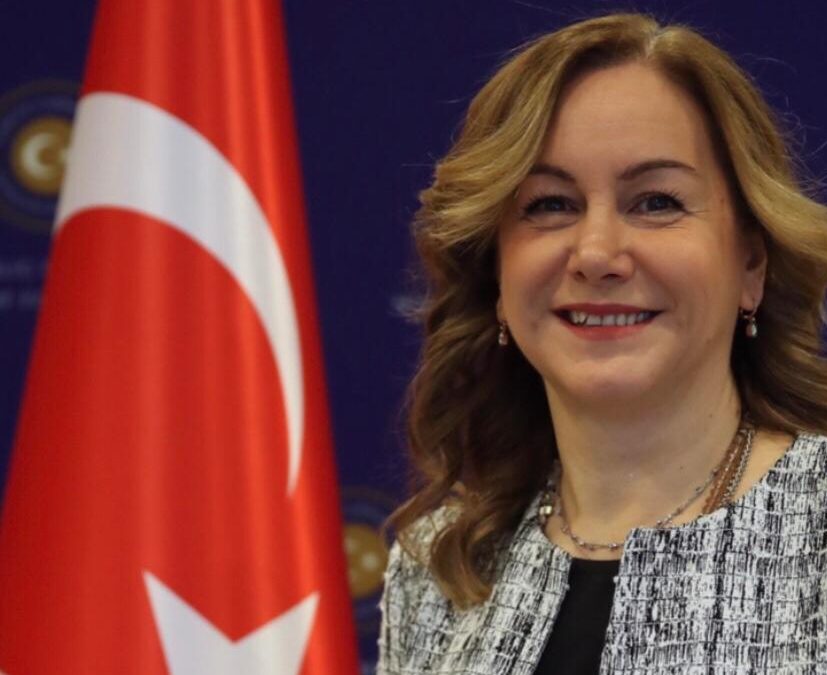By Owei Lakemfa
HENRY (Heinz) Alfred Kissinger, the most infamous United States Secretary of State and National Security Advisor, passed away peacefully at 100 on November 29, 2023 and is guaranteed a marked grave.
Not so for the tens of thousands Africans, Latin Americans and Asians who experienced violent deaths in their youth and had no tomb stones in their names due to the policies formulated and implemented by Kissinger. A prolific author, brilliant academic and highly cerebral intellectual, he, like his fellow German, Adolf Hitler, used his knowledge and skills to perpetuate unspeakable crimes against humanity.

One of the most vulnerable periods of Africa was in the 1970s, and tragically for the continent, it was the era Kissinger was most active, and perhaps most vicious, with no human compunction. In that decade, Africa was in the struggle for life as a vicious regime in Portugal massacred Africans in Mozambique, Cape Verde, Guinea Bissau and Angola in an attempt to perpetuate its colonial rule.
It was also the time, the Saharawi people led by POLISARIO, fought the Spanish for independence, and the Apartheid regime, assisted by the racist Ian Smith gang, tried to exterminate Africans in Zimbabawe (Rhodesia) Namibia (South West Africa) and South Africa itself. Kissinger was a major supporter of Apartheid and got the US to prop up that evil regime which was also invading various independent African countries.
An opportunity for freedom opened in 1974 when a Portugal in turbulence virtually abandoned its four to five centuries colonialism of Guinea Bissau, Mozambique and Angola. However, rather than hand over to the main liberation movement, the MPLA led by Dr Agosthinho Neto or organise elections, Portugal simply abandoned Angola. This gave the US and its Central Intelligence Agency, CIA, the opportunity to try stopping the radical MPLA from running the country.
First, Kissinger helped revive an old CIA asset, Holden Roberto leader of the FNLA who was living in Zaire (DRC) under his in-law, then President Joseph Mobutu Seseseko, to race to Luanda and take power. When the chances of Roberto did not appear bright, US propped up Jonas Savimbi of UNITA. When it did not appear these could stop the MPLA government, Kissinger engineered a combined force of the FNLA, UNITA, American mercenaries and the awesome Apartheid military, to seize power in Angola.
These forces pushed towards Luanda but Africa was angry that Apartheid was trying to claim another African country. A meeting of the Organisation of Africa Unity, OAU (now AU), was called for January 11, 1976 to take a position. Kissinger flew to Africa, warning the African leaders not to dare recognise the MPLA government.
An enraged Nigerian Head of State, General Murtala Ramat Mohammed, who had previously decided to send his Deputy, General Olusegun Obasanjo, to represent him at the summit, changed his mind, deciding to personally attend.
In his blistering speech at the OAU, Mohammed regretted that: “Rather than join hands with the forces fighting for self-determination and against racism and Apartheid, the United States policy makers clearly decided that it was in the best interests of their country to maintain White supremacy and minority regimes in Africa.”
He went on to deliver the killer punch: “Africa has come of age. It’s no longer under the orbit of any extra continental power. It should no longer take orders from any country, however powerful. The fortunes of Africa are in our hands to make or to mar. For too long have we been kicked around; for too long have we been treated like adolescents who cannot discern their interests and act accordingly.” With that and other speeches, Africa recognised the Angola government.
Thirty two days later, General Mohammed was gunned down in Lagos in an attempted coup. At the US National Security Council Meeting of May 11, 1976, Kissinger told President Gerald Ford that his actions in Angola and Africa were because “a communist victory in Angola would quicken events in Southern Africa, encourage radicalism and discourage moderates.”
At the time of this Kissinger briefing, Apartheid South Africa was massacring African children in Soweto and here was Kissinger asking the US to prevent the collapse of Apartheid! Kissinger also told Ford that the continent must not be allowed to develop because “Africa is important to us. Many key products—coffee, cocoa, cobalt, chrome, iron ore, diamonds—come from Africa, 30 to 60 per cent of our consumption; and for our European allies, the figures are even higher.
“The radicalisation of Africa would turn the Europeans, vis-a-vis Africa, into commercial enterprises rather than governments (we must) arrest the armed struggle in Southern Africa… The strategy was to slow down the struggle and get control of the process as we did in the Middle East.”
Cuba, led by Fidel Castro sent troops into Angola to stop the Apartheid-led push towards Luanda; that changed the tide of the war and led to the eventual collapse of the racist regime in Zimbabwe and the Apartheid regimes in Namibia and South Africa.
In Chile, Kissinger was a main co-ordinator of the bloody 1973 coup by General Augusto Pinochet against elected President Salvador Allende. That coup took the lives of over 3,000 Chileans with tens of thousands imprisoned and over 200,000 fleeing the junta. As humanity raised its voice in horror at the massacres of the innocent in Chile, Kissinger lied that it was a communist propaganda against the Pinochet regime.
Yet, with the CIA assisting Pinochet with the repression and the US having an embassy and diplomats in Santiago, Kissinger was well informed about the horrors being perpetuated in Chile. One of the most criminal acts of Kissinger against humanity was the carpet bombing of Cambodia from 1969.
The US was not at war with that country, yet it dropped about 500,000 tons of bombs on innocent Cambodians. Kissinger claimed that the bombs were targeted at Vietnamese soldiers whom the US suspected were hiding in that country. It was a precursor to the 2023 Israeli bombing and destruction of hospitals in Gaza because it had the false belief that the Hamas is operating beneath hospitals.
In December 1972, the US, desperate to withdraw its troops from Vietnam, dropped over 20,000 tons of bombs on Hanoi over a 12-day period to force a quick peace accord. Kissinger said the bombing was designed to shake the Vietnamese “to their core”. The following year, the Nobel Peace Prize was awarded to both the warmonger, Kissinger and Vietnamese revolutionary, Le Duc Tho.
The latter, pissed off by the such blatant hypocrisy, rejected the award. If the world were built on justice, Kissinger would have spent the rest of his life in jail for crimes against humanity. But he was from God’s Own Country. God bless America!








